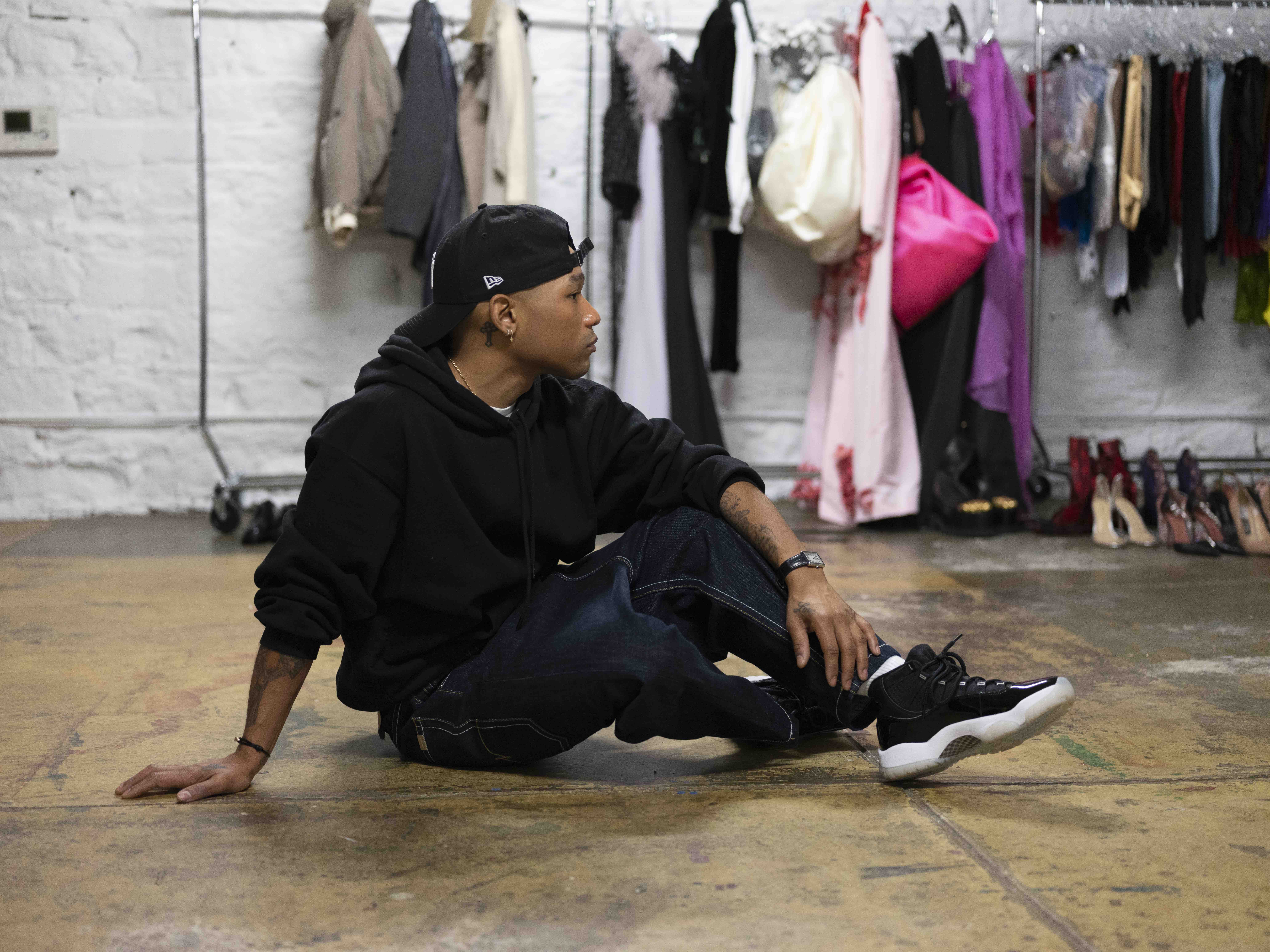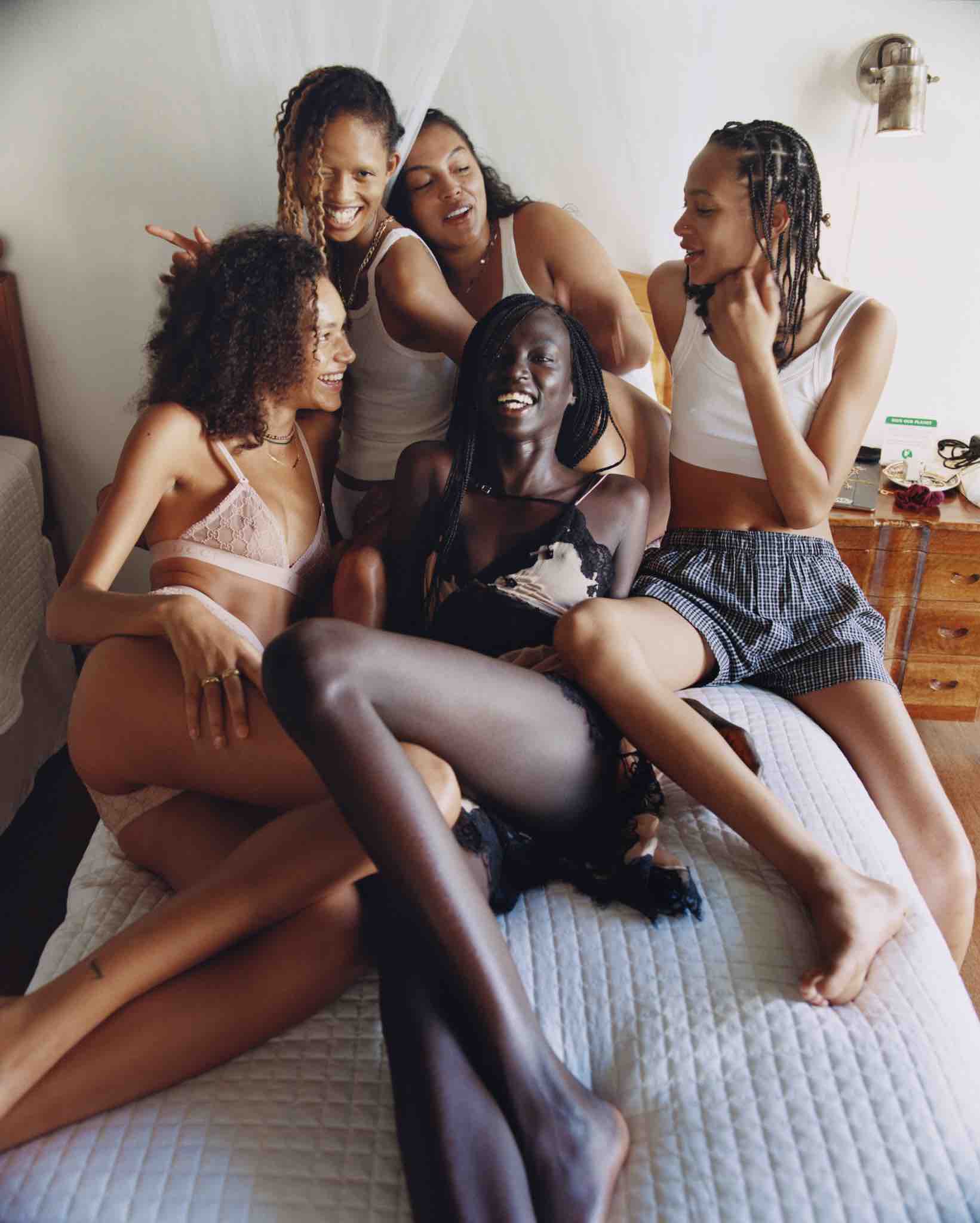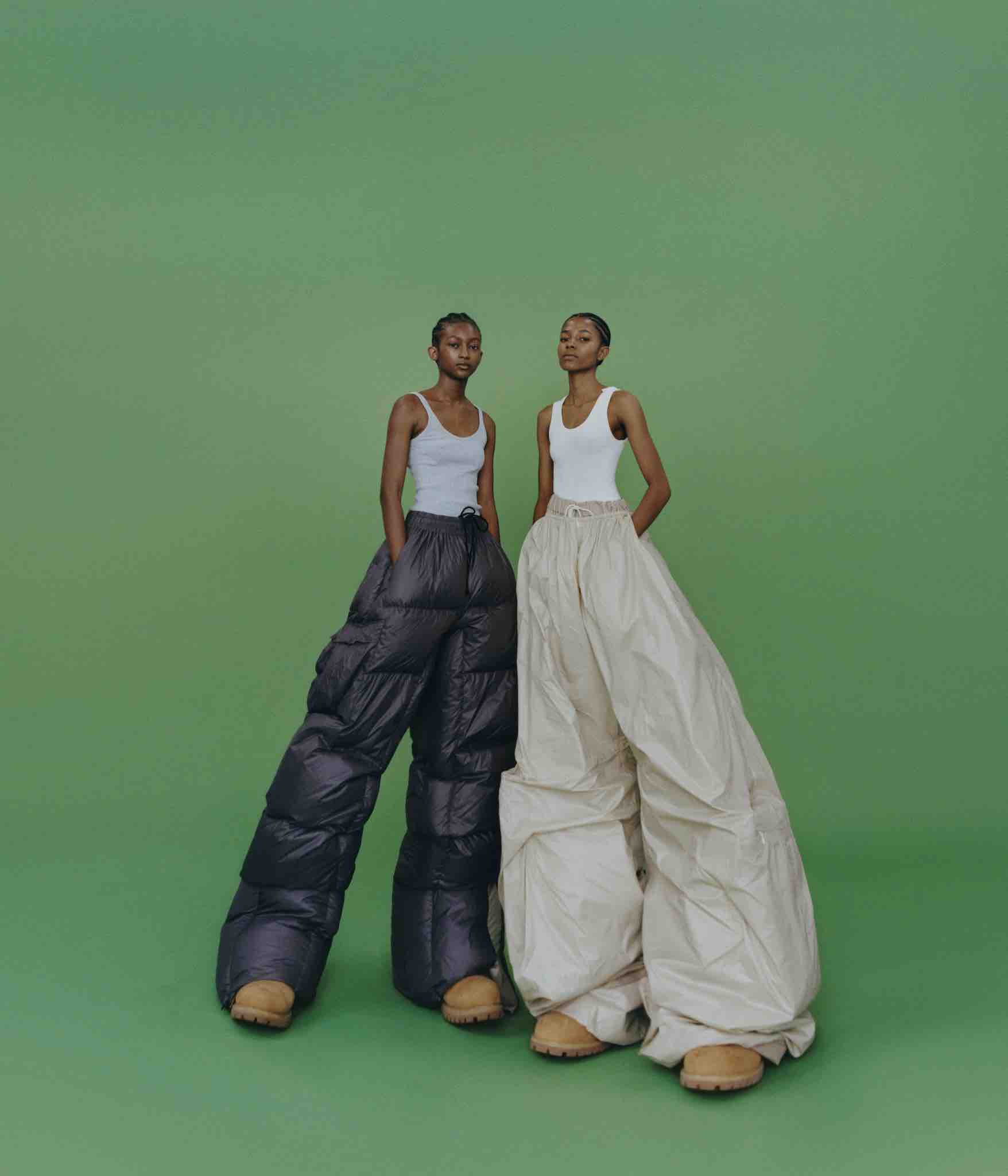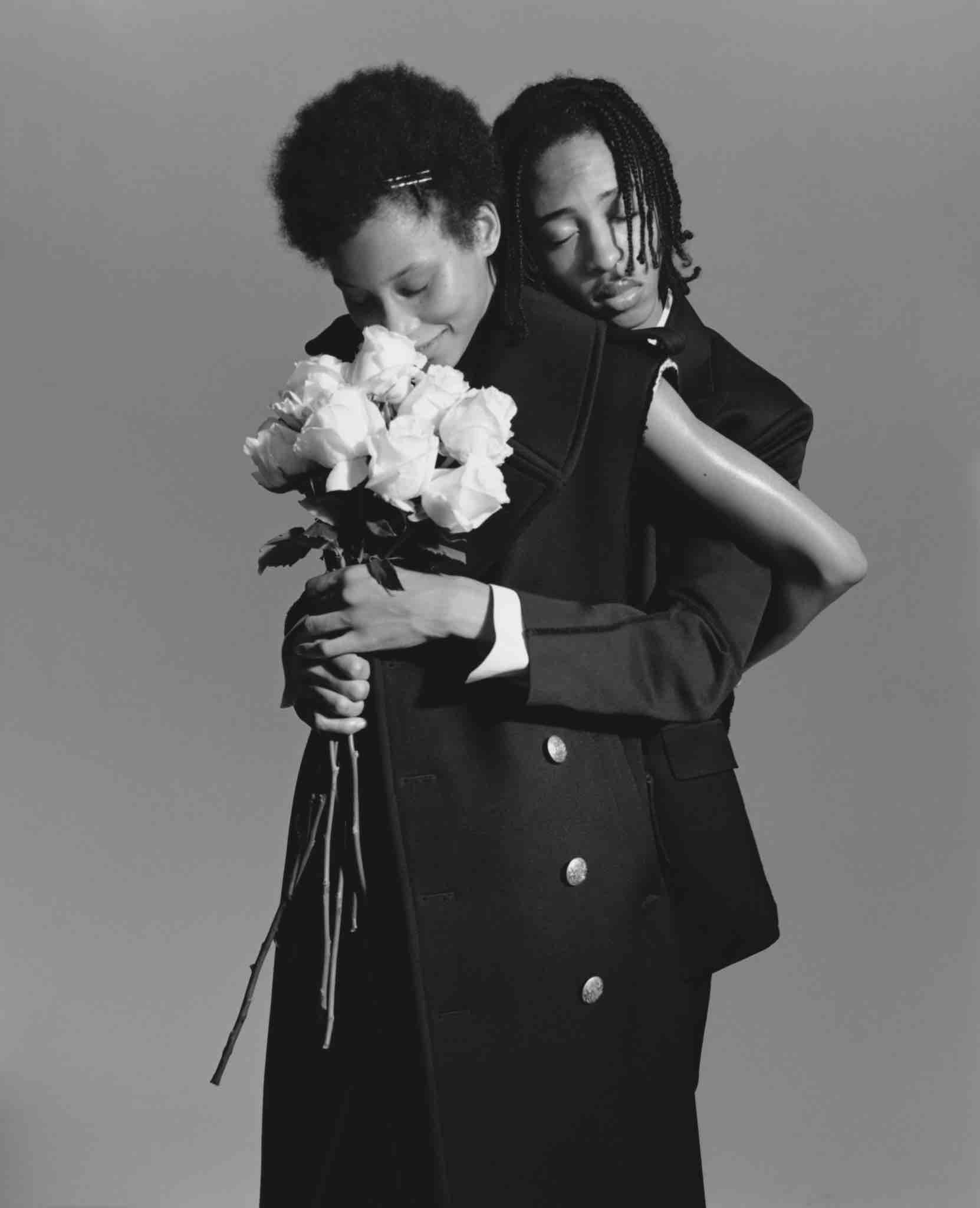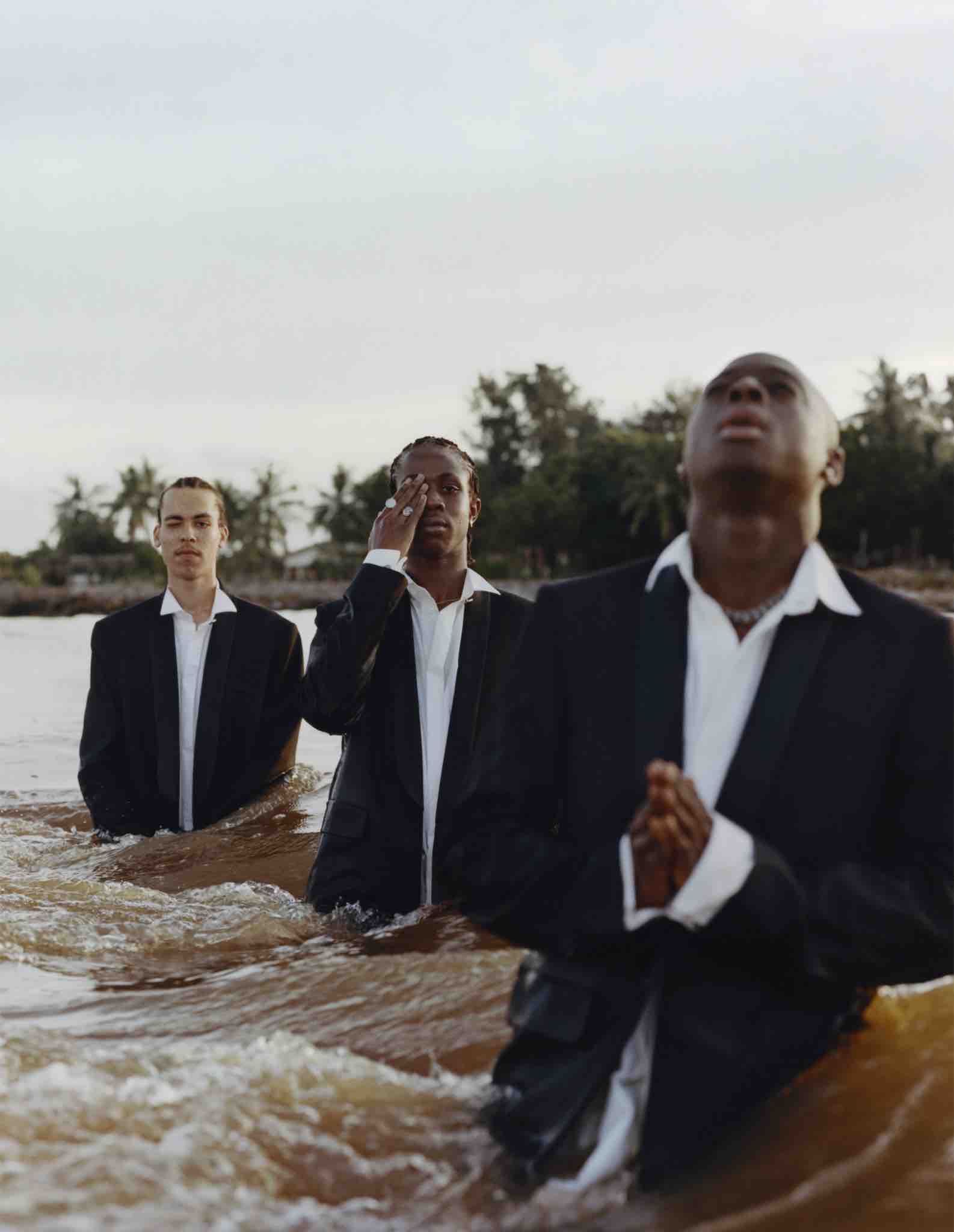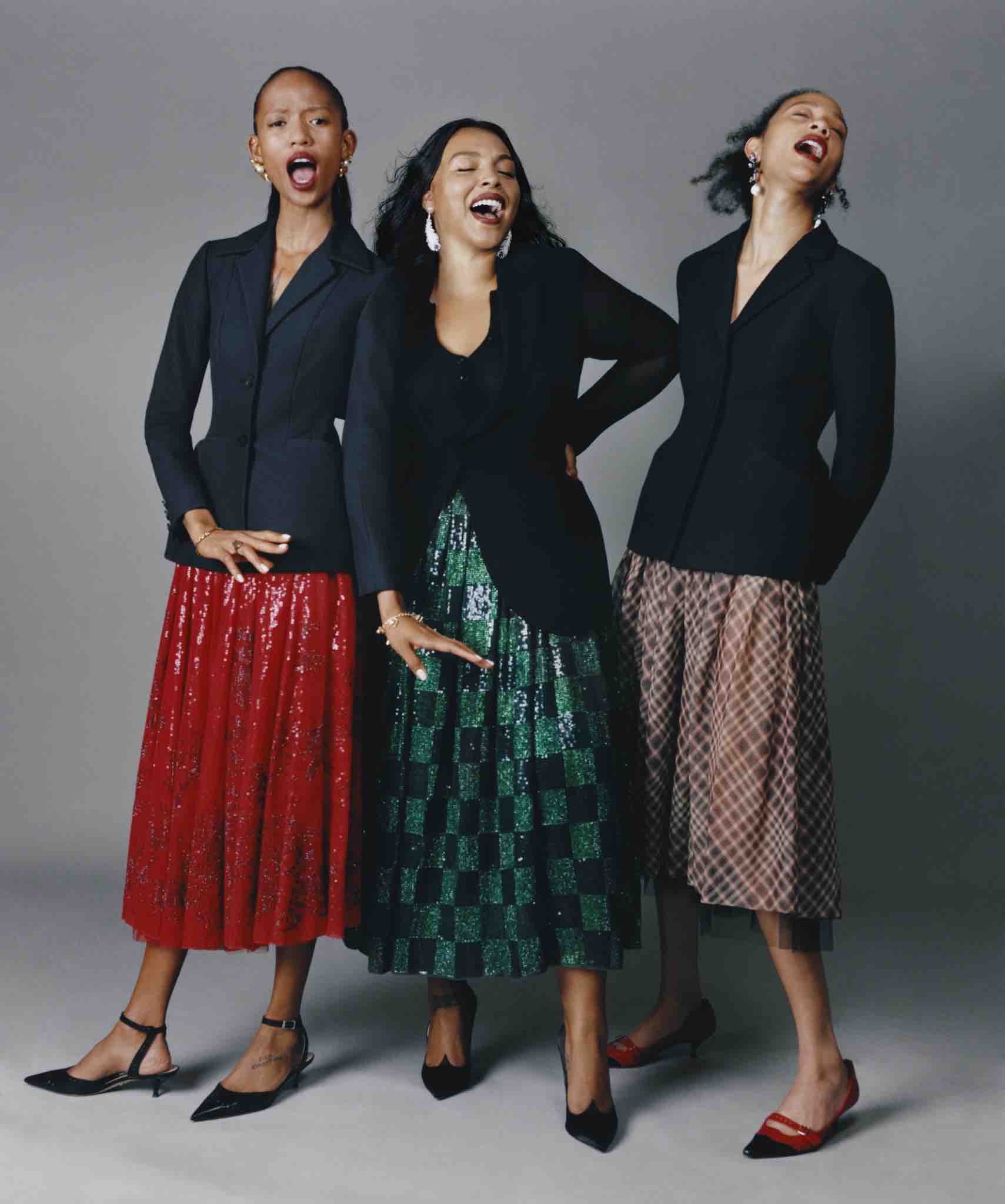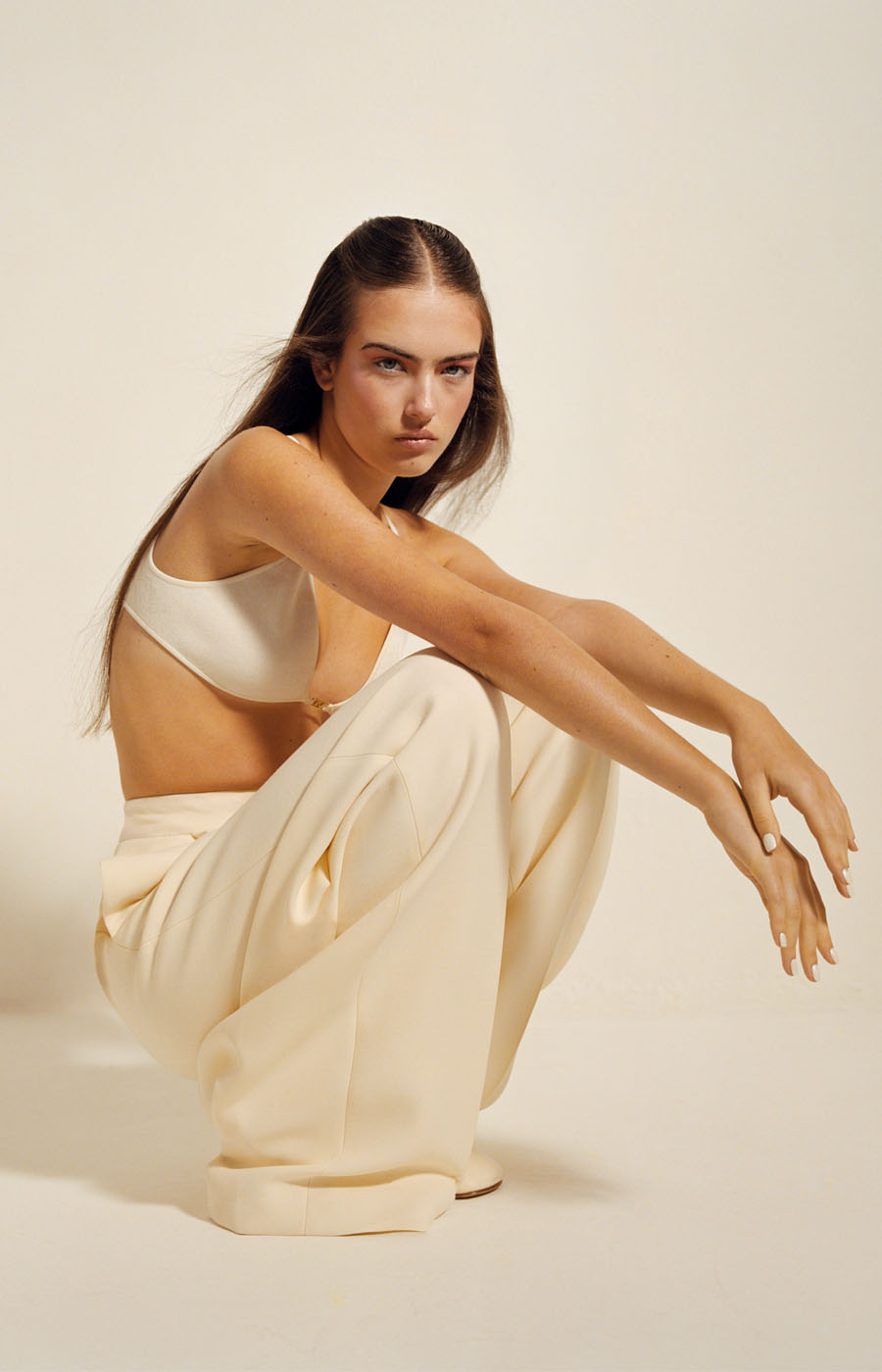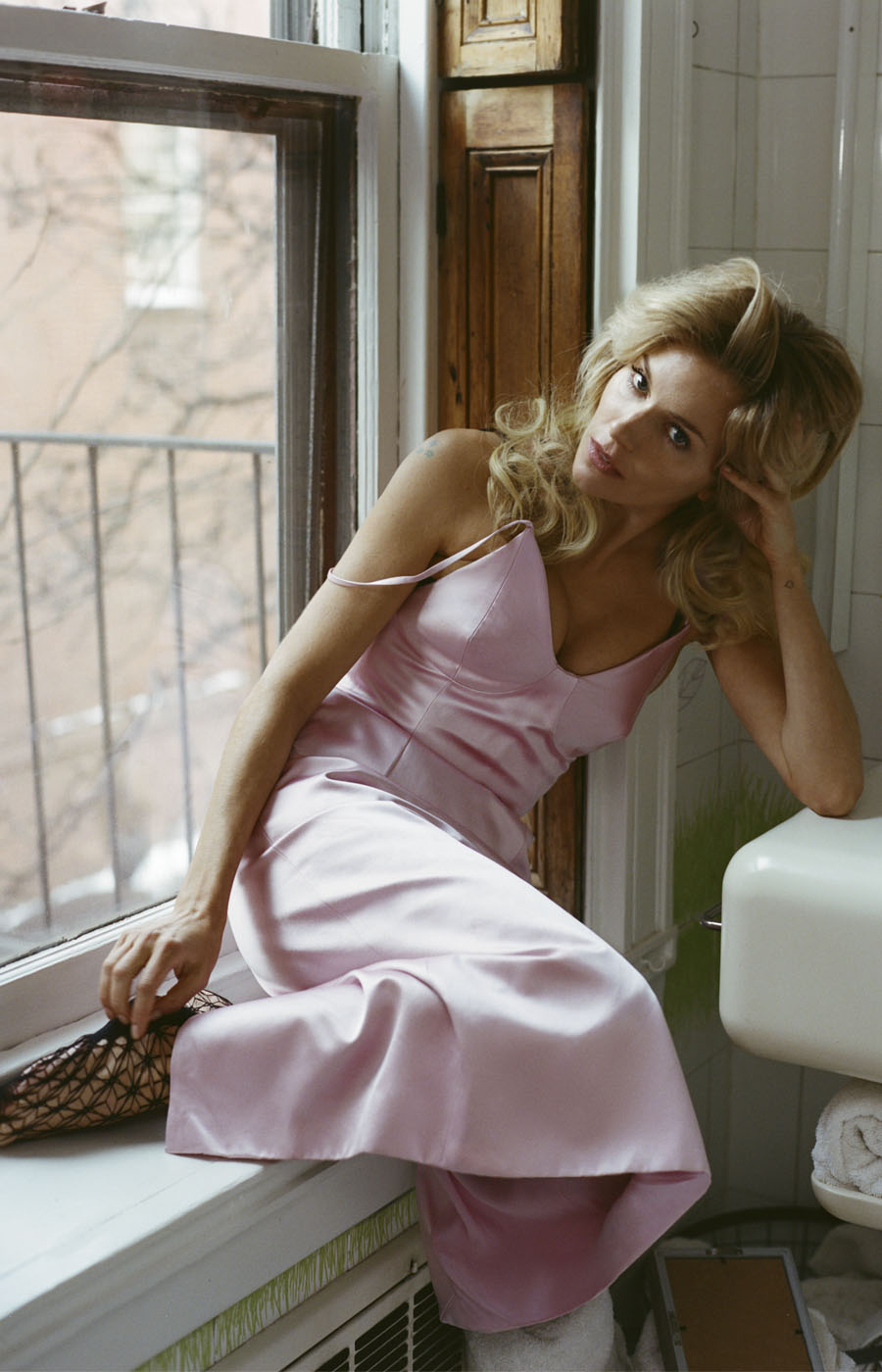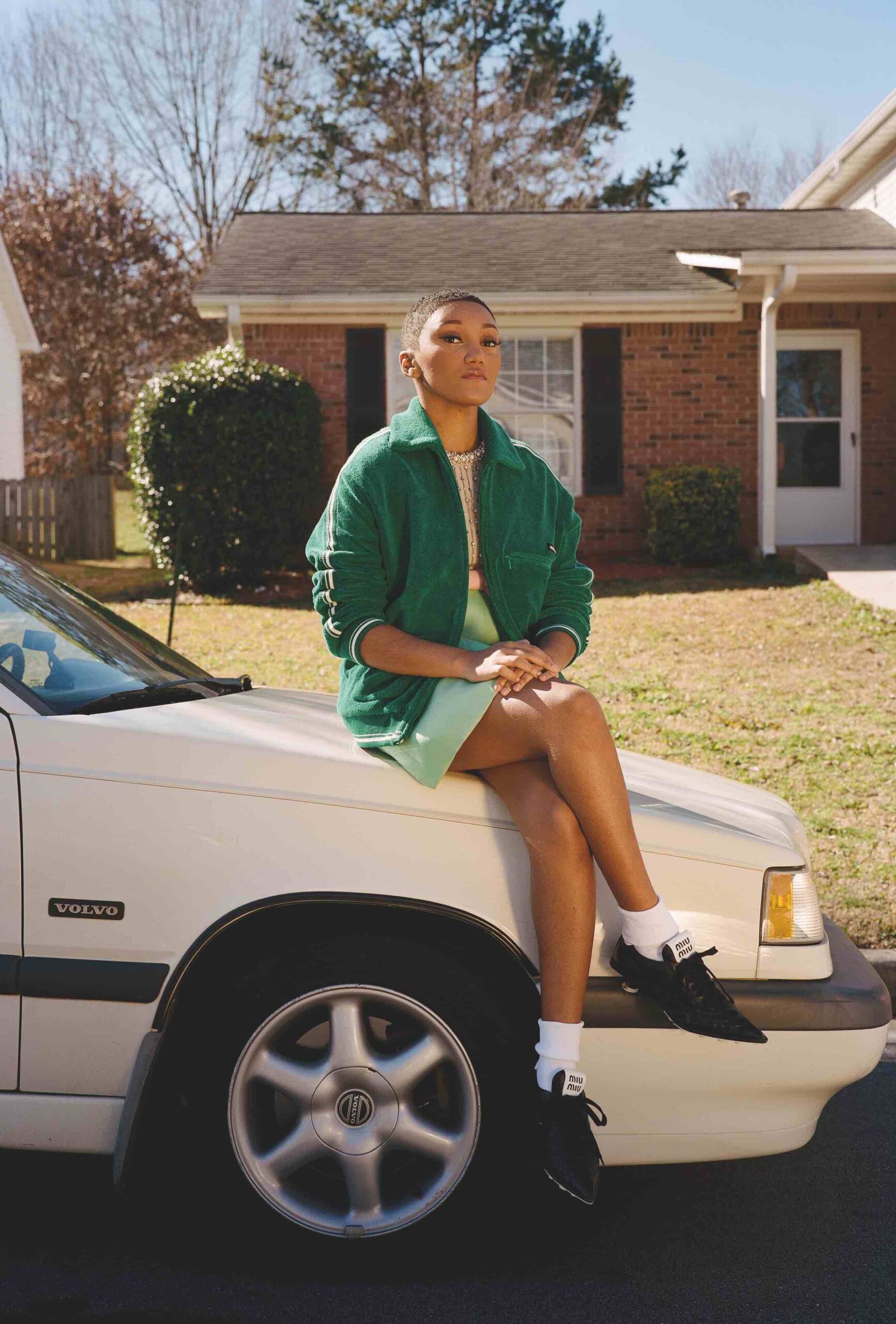Carlos Nazario is a new generation industry royal who has emerged during recent years. Despite the regal air that embodies him so well, it’s in his humanity that one can find the real magic behind continued and growing success. Informed and ever aware of the outer layers, he speaks with a great deal of ease and clarity. Understanding both his authority and the accompanying obligation to wield it responsibly, he’s the rare kind who bears the next generation in mind. And rather than simply inheriting the kingdom as left by his predecessors, he seems determined to evolve it.
CM After such a wild year that has on so many levels been confronting, I wanted to jump off by asking: what was the big takeaway for you?
CN Our new Civil Rights movement has affected me or shaped me in ways that I didn’t ever consider prior to the events of last Summer leading up to now, and it hasn’t stopped. I always thought I was conscious, sensitive, and vocal. I never considered myself a victim of racism, and I don’t know that I ever really allowed myself to feel how racism had affected me negatively. I say that, because I’ve always considered myself quite privileged, specifically with regard to the support that I’ve received in the industry, and the ways that I feel people have championed me. Most of my supporters were white, only because the vast majority of decision makers in this industry are white – but I never saw myself as a victim of my race. Still, I think the conversations that have been inspired by everything going on in that atmosphere and the election have incited so much emotion in people – whether it’s those who are a bit more like-minded to myself, or people who want to hold on to a more old-fashioned view of how the world should work. Being in touch with all of that has really shaken me and made me confront myself in a way. It’s made me realize that I have been even more privileged than I would have ever considered. I think that my proximity to white supremacy has certainly benefited me, and I think that perhaps I wasn’t doing as much as I could have or should have. I was also always very cognizant of the fact that in the generation prior to ours, there were a few figureheads – black figureheads – that were very successful and represented the potential opportunity. This past year made me realize that I hadn’t been doing enough, either. We’ve been tasked with redesigning the industry and reimagining it, for ourselves and for future generations. Our responsibility is so much greater and I now think about why I’m making work.
CM I would love to dive into that – a lot of us have talked about redefining, or at the very least, revisiting ours why. Do you feel as though yours has changed during this period?
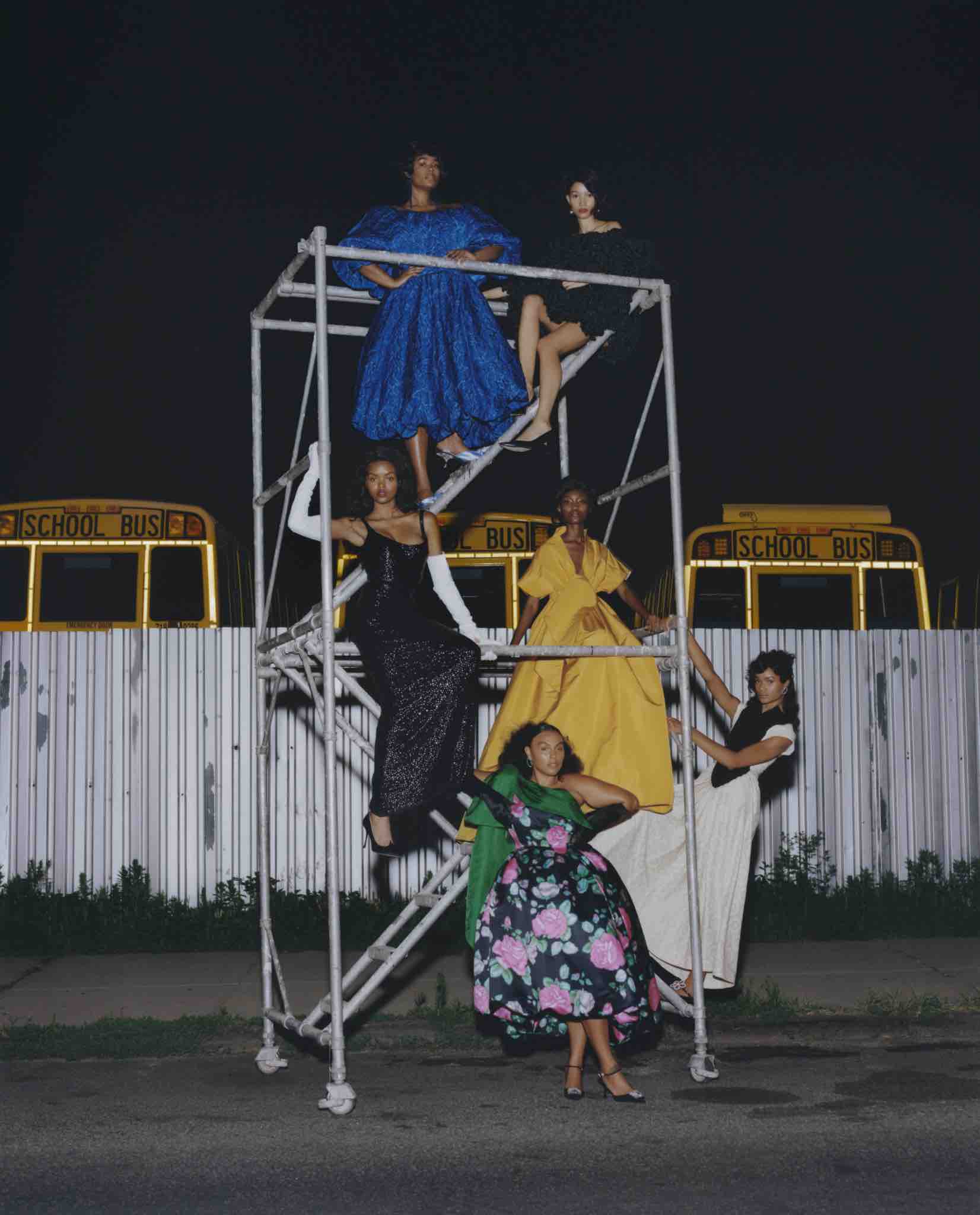
We have to keep reminding ourselves that in order for our industry to remain relevant, we need to project and portray an accurate version of what our world really looks like and feels like.
CN I’ve never really been the type of Stylist who’s obsessed with clothes, per se. I’m really interested in the transformative nature of fashion, in fashion as a sort of cultural language, and the way it can be a signifier, or how the way we choose to present ourselves to the world is so personal. I’ve always been intrigued by the way people use clothes to tell stories, for example. The way fashion can truly affect people’s lives has taken a renewed sort of center stage in the way a lot of us work: fashion as a platform – as a means to tell stories, and the people that we choose to star in the stories. So in that way, it’s become less about the clothes than before. That’s not to say that suddenly I want to just shoot everyone in jeans and a t-shirt – it’s actually been quite the opposite. Tyler Mitchell and I recently did a project for Vogue Italia where it was all about this renewed commitment to presenting yourself as the way you feel on the inside. Watching people lose their jobs, loved ones, or their lifestyles that were once so important to them but now seem so insignificant; has changed a lot of our thought processes, and certainly mine.
CM Are you more internally referenced or externally referenced in terms of the things that inform your identity?
CN It varies. I think it’s a process, and some of us are lucky enough to conceptualize things internally and then produce them into something tangible. Whether that’s a picture, or an item of clothing, or a painting, or whatever, I think it is inherent. Most of us start with this internal struggle – and we are just lucky enough to get some of those thought processes out by means of our creation. Now more so than ever, I’m giving myself space to not feel like I have to know all of the answers or that I have to be an authority on everything – because it is a process and a journey.
CM You speak about the roles played, or the sense of obligation to know everything – what are some of the ways you relate differently to magazines that you free-lance for versus somewhere like i-D where you have the role of Fashion Director?
CN Everything that I do, I try to make it mean something. I’m in an incredible position in my career thankfully, and there are a lot of places that I could contribute to, so I really try to be quite intentional about which platforms are the most in line with my point of view, or the way I want to say the things I want to say – but it’s also important to have the biggest platforms, to have the most amount of people. With i-D, I have an incredible amount of freedom, and that’s what i-D has always been about. With places like Vogue that are a bit more industry and trend-driven, and have a viewership that won’t always react to my more niche ways of telling a story – I’m just as intrigued by (communicating) in that way. It’s an incredible platform, and doing Lizzo for the cover of US Vogue is how you shift and form opinions. Interestingly enough when I did that cover, I was intrigued by the response on social – because we still live in a vortex of like-minded people in a way. So you can imagine when there is somebody in Minnesota saying, “Why do you have this big black woman on the cover of Vogue? It’s supposed to be beautiful…” people say stuff like that, and while you’re shocked, you also realize the importance of the work we are doing.
CM Your emergence as a new generation royal of industry happened pre-pandemic, but you’ve certainly shown no signs of slowing down. While not everyone has experienced the same level of certainty around their future in this space – is that something you feel aware of, or is it more of an outside-looking-in kind of thing?
CN It’s something that I think about a lot – and I do feel really lucky and really privileged. The fashion industry is very cutthroat, and I think that this moment has been harsh on a lot of people in a lot of industries. You can’t help but feel guilty in a way, and it’s a really weird position to be in – at this moment where you’re achieving such incredible professional highs and the goals that you’ve dreamed of for so long, and you almost feel ashamed celebrating them because you are aware that a lot of people are suffering. There’re two industries: the people who are trying to make it, and the people who have “made it.” And hopefully, now those of us that have “made it” won’t forget to reach back to the people that are still trying to.
CM A lot of us have been feeling like it’s important to hold on to the realizations that have occurred during this past year – what are some of those takeaways from this time that you want to make sure you bring into the future?
CN We have to be sensitive to the voices that we uplift and the stories that we tell. People are listening, and people are very affected and triggered by the images we create and the images we promote. There is a very clear division right now between people who want to hold on to the past, and the sort of old way of thinking, which meant that you had to be born into the right family and look a certain way in order to be successful. We can’t go back to that. We have to keep reminding ourselves that in order for our industry to remain relevant, we need to project and portray an accurate version of what our world really looks like and feels like. That also has to extend to those of us that are in positions to make decisions, and it has to extend to those that are employed behind the scenes.
We have to engage and uplift this new generation. It’s very easy to say, “oh the young kids are just lazy.” But at the end of the day, we too were just young people that needed to be guided, supported, and uplifted – and I was lucky enough to receive all of that. There have been a lot of round table conversations and councils and associations that have been put together, and I want us to all remain engaged, aware, and really vocal. It’s through these really difficult conversations that true change is born. Certainly last year, everyone was talking about doing less and making more impact – with regards to the way we were showing clothes, the way fashion weeks were organized, the seasons. Because let’s face it, we’ve created this gigantic, insatiable beast that we constantly have to feed with content and collections. How can you do 24 good pictures in a day? If you don’t want to do it, somebody else will, and I think that’s just the reality of the situation. Nobody needs as much as we are producing. It’s both wasteful and exhausting and contributes to a culture that is really unhealthy. This idea of never having enough – you can never shop enough, you can never own enough, you can never be skinny enough, your skin can never be tight enough – it’s exhausting. I think it’s important that we continue to be cognizant of the imagery we put out there and I really want to continue to put forward positive images of positive people.
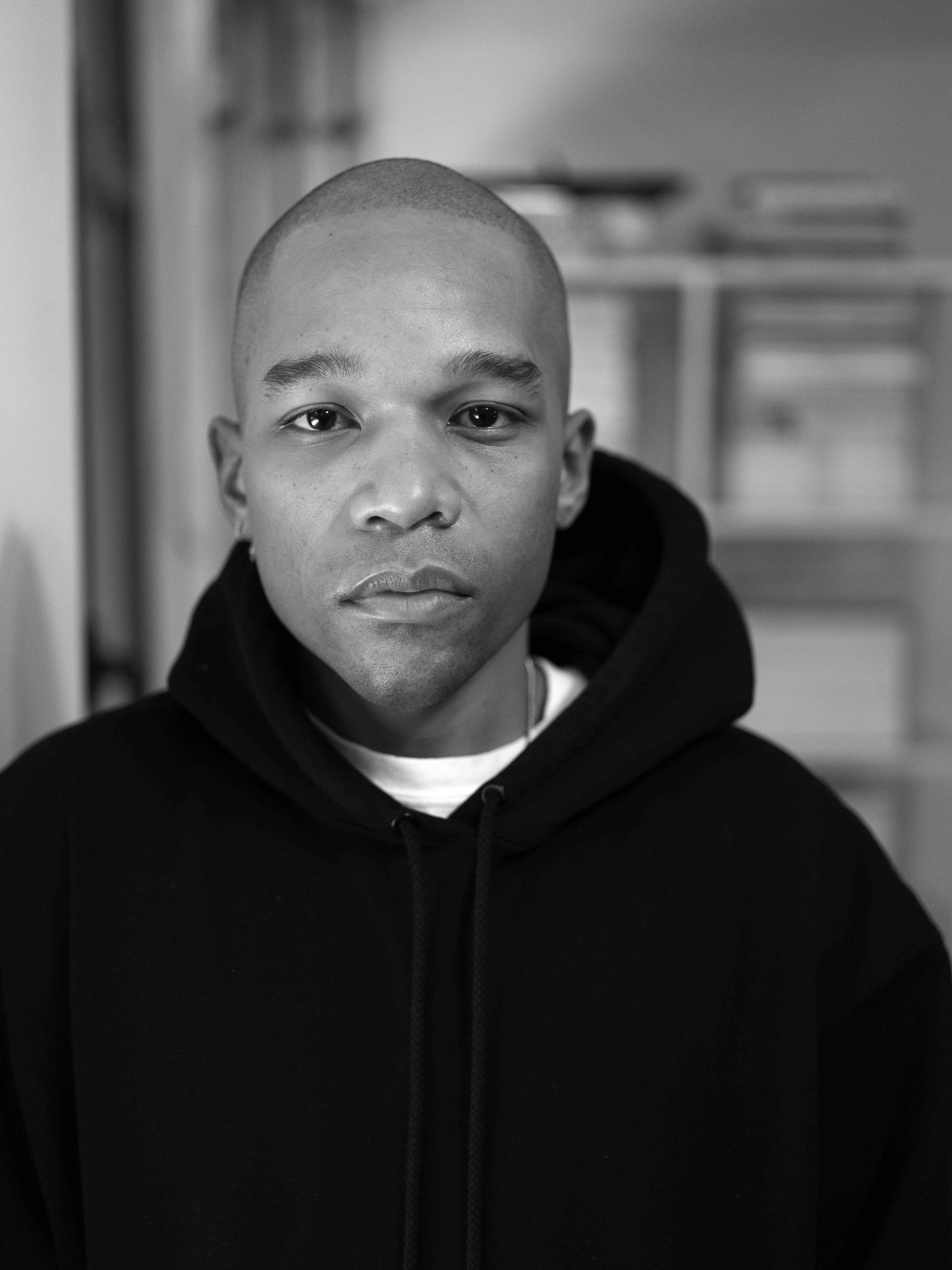
CM You have a passion for these things in a way that I find fascinating because optically, you have all of the boxes checked – what do you consider the driving force behind your investment in things like Body Positivity?
CN I grew up in New York, which can be superficial. If you grow up around the worlds of art or fashion, there is this strong emphasis on physicality. I also come from a family, frankly, that puts a large emphasis on physicality, presentation, and appearances. From a very early age, I just sort of understood that to be thin was to be better. If I had grown up ever seeing anyone in mainstream media that did not look like these impossible representations of what a human body can and should look like, maybe I’d have a different relationship to it. This is an industry populated by incredibly insecure people who require a certain amount of attention and reassurance. I don’t want people to look at my work and think that “Oh well, that must be the only way to be”. As much as the business has changed, there is still a lot of work to do. If you want people to be impacted by your message, you have to come at them in a way where they can receive it.
CM What are you the most excited about going into the future?
CN I feel a very strong sense of excitement and joy for our re-emergence. I think that, just like everyone else, I really miss physical contact. I’m a very affectionate person and enjoy working with my hands, and I still get down on my hands and knees and tie shoes and still fluff clothes and stuff. I miss being in crowds, live music – and I miss the exchange of information that can only happen when you’re in a room of people who feel really comfortable. Whether that means a meeting with your team at a magazine, or a fashion show, whatever it is, I miss that rhythm of connectivity and the way it informs our work. We get to tell these incredible stories, that if we do it right, will inform and inspire an entire generation. I’m sure you can remember being a young boy and looking at a picture that really inspired you. I remember not knowing what it was, but looking at imagery and thinking That’s what I want to do. We’ve had this timeout to remind ourselves why we do what we do, and I’m hopeful that we can all bring that gratitude into our work.
